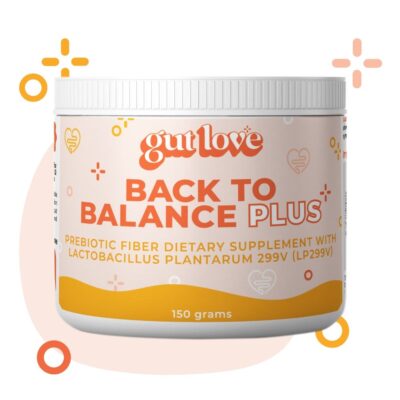Have you wondered what a j-pouch surgery is and what is is used for? Maybe a doctor has mentioned it to you and you have been confused. Keep reading if you want to learn more about the procedure itself as well as nutritional implications!
J-Pouch Surgery: What to Eat & the Nutritional Implications
What is a J-pouch?
J-pouch is a procedure that is commonly recommended for patients with ulcerative colitis. This procedure is performed when medications have failed to control UC symptoms. Surgery can seem scary, but it is another very valid treatment option that is life saving!
Another term for a j-pouch is called proctocolectomy with ileal pouch-anal anastomosis (IPAA). During this procedure, the colon and rectum (parts of the large intestine) are removed and the last portion of the small intestine, the ileum, is used to create a pouch that looks like a “J.”
How is a j-pouch procedure performed?
The procedure can be performed in 1-3 stages, where 2 stages are most common. In the first surgery, the colon and rectum are removed, creating a j-shaped pouch that connects the ileum to the top of your anal canal (located below the rectum).
While your pouch is healing, a temporary ileostomy is created and used so that waste can be excreted through a stoma (opening in your abdomen). This is where part of the ileum is outside of the abdominal wall so that a stoma can be created. An ostomy bag is attached to the stoma, where the waste is collected. The ileostomy is then closed once the j-pouch has been healing for a few months.
HERE is a video showing how a J-pouch is created by the Crohn’s & Colitis Foundation!
Nutrition considerations prior to J-pouch surgery
Prior to having a j-pouch procedure, it’s imperative that the healthcare team assess malnutrition risk since 20%-85% of patients with IBD are malnourished (1). There are evidence-based protocols, including enhanced recovery after surgery or ERAS, that can help improve outcomes and recovery after having this procedure.
From a nutrition standpoint, clear liquids and carbohydrate drinks are recommended up to 2 hours before surgery. Practicing these guidelines can also improve blood sugar control and help prevent dehydration, as well as help reduce insulin resistance after surgery and weight loss. After surgery, per ERAS programs, it is recommended to have high-calorie drinks within a few hours after the procedure.
Nutrition considerations after to J-pouch surgery
Recovery from j-pouch surgery takes time and can vary greatly person to person. Everyone will have their “new normal” which is why it is important to take time, be patient, and compassionate with yourself during the healing process.
As the pouch starts to heal, it can take time for bowel movements to decrease. Avoiding spicy foods and foods that are tough in texture may be recommended and better tolerated. Bowel movements may also range from 5-6 per day as it can take up to a year to have a new normal bowel function.
During this healing process after surgery, it can be helpful for you to consume a low-residue, soft-consistency diet. A low-residue diet is when the intake of fiber is decreased along with other foods that may aggravate gastrointestinal (GI) symptoms.
Nutrients of concern after j-pouch surgery
As the pouch heals and more foods are tolerated, it’s important to look at key nutrients to help keep your nutritional intake balanced throughout the day. There are a total of 6 essential nutrients we need from food:
- Carbohydrates
- Fats
- Proteins
- Vitamins
- Minerals
- Water
To maintain adequate nutrition, slowly incorporate these foods into the diet and consider changing the texture to make foods more easily digestible. As always, discuss this with a physician or healthcare provider before making any changes.
Some additional ways to ease the workload on the digestive system include:
- Chewing food slowly and well
- Consume small, frequent meals
- Hydrate in between meals
Nutrients that can become lower from j-pouch surgery include iron and B12. Fat malabsorption and electrolyte imbalances can also be present due to both having a j-pouch and complications from pouchitis.
Dehydration and J-pouch
Remember that the colon’s main responsibility is to absorb fluid and sodium (along with other electrolytes) while passing formed stool. When an ileostomy is formed and when the colon and rectum have been removed, fluids and electrolytes are no longer absorbed from the large intestine. Therefore, when a pouch is created, output tends to be increased and stool can have a more liquid consistency.
The body’s main goal is to be in a balanced state. So, when there’s a higher output of stool and an insufficient amount of water along with minerals such as electrolytes, there is an increased risk of dehydration. This is especially true when diarrhea is present.
Signs of dehydration:
- Thirst
- Decrease or dark-colored urine
- Low blood pressure
- Light-headedness
- Fatigue/sense of weakness
- Cramps
It is important to focus on rehydration strategies in the presence of dehydration. Consuming liquids that have salt and sugar (carbohydrates) is helpful in absorbing electrolytes and thereby improving hydration status. An example of a good hydrating beverage is coconut water (not milk) since there are water, sugar, and electrolytes. Also, a helpful trick to assess your hydration status is to look at the color of your urine and make sure that it has a lemonade-like color rather than apple juice color.
Pouchitis
Pouchitis, or inflammation of the ileal reservoir (pouch), can occur after having j-pouch surgery. Mechanical complications of the pouch can occur for many reasons leading to pouchitis. Interestingly, it is the microbial community that can affect the health of the pouch (2).
According to research, certain risk factors for developing pouchitis include (3):
- Extraintestinal manifestations
- NSAIDs
- Backwash ileitis
- Primary sclerosing cholangitis
Because patients with pouchitis tend to consume fewer antioxidant-rich sources including fruits and vegetables, higher oxidative stress levels are more present within this population compared to patients without pouchitis (6). Low vitamin D levels are also common even when there’s no apparent inflammation (2).
It is important to note the importance that nutrition plays in the prevention of pouchitis. Higher consumption of fiber can help with the protection of pouchitis. Short-chain fatty acids are produced by consuming fiber-rich foods like legumes, nuts, cereals, fruits, soybeans, whole grains, and vegetables.
Additionally, fecal calprotectin levels in patients with IPAA following a Mediterranean diet were associated with decreased levels. This may possibly be due to the higher fiber content of the diet itself!
Treatment and prevention of pouchitis
The common treatment for pouchitis includes antibiotics such as metronidazole and ciprofloxacin. Furthermore, the De Simone Formulation, a probiotic known as Visbiome, has been shown to be helpful in the treatment of mildly active pouchitis according to some studies (3). Lactobacillus rhamnosus GG can also be helpful in postponing the development of pouchitis as well (5).
In a randomized, double-blind, placebo-controlled study, 40 patients who had IPAA had either 450 billion bacteria of the probiotic blend or placebo for 1 year after ileostomy takedown. The results indicated that out of the 20 patients who were treated with the probiotic blend, 2 of them had acute pouchitis while 8 of the 20 placebo patients experienced acute pouchitis without the probiotic blend (4).
Final Thoughts
We know that nutrition and lifestyle can play a large role in increasing the quality of life in patients who have j-pouch and other GI surgery. We also know the importance of correcting nutritional deficiencies to prevent further inflammation in the body. And to also help heal the body in conjunction with medication(s).
The Crohn’s & Colitis Dietitians specialize in IBD and have worked with patients who have also had surgery to help improve their quality of life and outcomes. Book a free, no obligation, consultation call to discuss ways we can help you!
References:
- Balestrieri, P., Ribolsi, M., Guarino, M. P. L., Emerenziani, S., Altomare, A., & Cicala, M. (2020). Nutritional Aspects in Inflammatory Bowel Diseases. Nutrients, 12(2), 372. https://doi.org/10.3390/nu12020372
- Gionchetti, P., Calabrese, C., Laureti, S., Poggioli, G., and Rizzello, F. (2021). Pouchitis: Clinical Features, Diagnosis, and Treatment. International Journal of General Medicine,14 3871-3879. https://www.dovepress.com/getfile.php?fileID=72016
- Gionchetti, P., Rizzello, F., Morselli, C., Poggioli, G., Tambasco, R., Calabrese, C., Brigidi, P., Vitali, B., Straforini, G., & Campieri, M. (2007). High-dose probiotics for the treatment of active pouchitis. Diseases of the colon and rectum, 50(12), 2075–2084. https://doi.org/10.1007/s10350-007-9068-4
- Gionchetti, P., Rizzello, F., Helwig, U., Venturi, A., Lammers, K. M., Brigidi, P., Vitali, B., Poggioli, G., Miglioli, M., & Campieri, M. (2003). Prophylaxis of pouchitis onset with probiotic therapy: a double-blind, placebo-controlled trial. Gastroenterology, 124(5), 1202–1209. https://doi.org/10.1016/s0016-5085(03)00171-
- Gosselink, M. P., Schouten, W. R., van Lieshout, L. M., Hop, W. C., Laman, J. D., & Ruseler-van Embden, J. G. (2004). Delay of the first onset of pouchitis by oral intake of the probiotic strain Lactobacillus rhamnosus GG. Diseases of the colon and rectum, 47(6), 876–884. https://doi.org/10.1007/s10350-004-0525-z
- Ianco O, Tulchinsky H, Lusthaus M, Ofer A, Santo E, Vaisman N, Dotan I. Diet of patients after pouch surgery may affect pouch inflammation. World J Gastroenterol. 2013 Oct 14;19(38):6458-64. https://doi.org/10.3748/wjg.v19.i38.6458.






What are the food to eat ,to preparing for a j pouch surgery? I will doing a j pouch in another 3 months.
Hi Tara, since I don’t know your individual case I can’t advise on what to eat prior to j-pouch surgery. I would suggest scheduling a call with us and getting some 1:1 guidance.